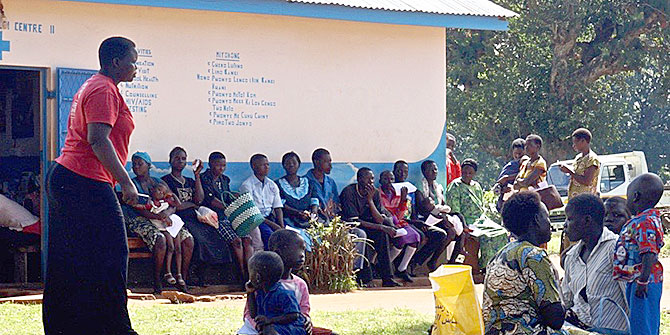Dr Tiziana Leone is a Lecturer in Demography in the Department of Social Policy and a Senior Research Fellow in LSE Health. Dr Leone argues that it is time censuses in Africa go through a complete overhaul.
As the results of the latest census round drip in, we are left wondering whether this has been a missed opportunity in the same way that the 2000 round was for many countries.
Censuses represent a vital source of basic demographic data in most sub-Saharan countries. Given the lack of vital statistics in particular for mortality data, the census is the key resource of information in several critical areas.
The Marrakech Action Plan in 2004 recommended the implementation of the 2010 World Programme on Population and Housing Census as an important area of action for improvements in the national and international statistical capacity.
The United Nations Statistics Division has taken the lead in this since 2005 and the number of activities aimed at exchanging information and implementing successful methodologies has multiplied.
The danger of the sometimes ‘uncontrolled’ enthusiasm for census data has been the inclusion of numerable variables in the census questionnaires. Most notably, disability and cause of death data are among those to have sometimes unnecessarily populated the census data collection.
Data quality aside (eg census data are not suitable for disability questions), we see ever too many census bureaus struggling, trying to process basic tabulations on the population’s fertility or mortality. Ideally, we want census questionnaires to be two pages long rather than six to eight.
The United Nations Population Fund has dedicated a considerable amount of its resources to give technical assistance to sub-Saharan African countries. This includes huge numbers of consultants employed to implement census plans and/or advice on data analysis. As a result, there is a reliance on external help rather than investing in staff training.
Informal conversations with UNFPA staff have highlighted the need to train more statisticians and demographers. This is mainly true as estimates on adult mortality are impossible to gather given the lack of vital registration.
One key example is Lesotho which took four years to release the data. The issue was due to the census form being too long and the input of the data too cumbersome. By the time the data was out, most people were looking at the latest Demographic and Health Survey as the source for key demographic data.
So here’s the question – is the 2010 census round a missed opportunity in many countries? We would hope not, but so far the results are not comforting. Delays and lack of trust in many sections of the census means that by the time the data is out it may be either obsolete or unusable. This could lead to questions as to whether it is worth the continued investment.
Capacity building should start from training. The key to good quality is to invest in the training of statisticians and demographers at local and regional level rather than spending unnecessary resources in squeezing in yet more questions and employing external consultants.






